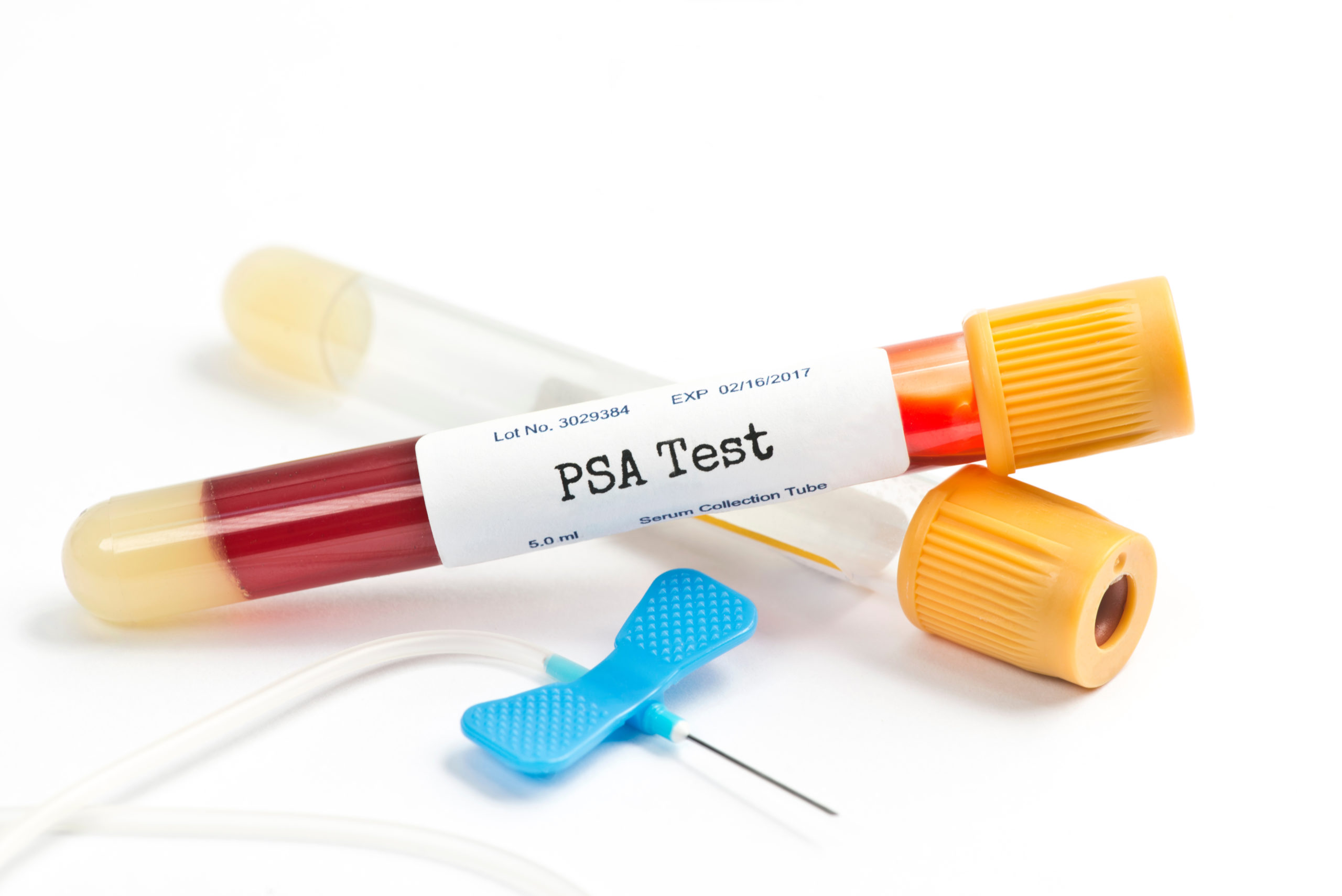Elevated PSA
Elevated PSA
What is the PSA test?
The PSA blood test measures levels of prostate-specific antigen, or PSA, which is released into the bloodstream from cells in the prostate. Elevated PSA levels can mean that cancer is present, although this is not always the case.
Until about 2008, some doctors and professional organizations recommended PSA screening every year for men beginning at age 50, and beginning at age 40 or 45 for men at higher risk of getting prostate cancer. Men at higher risk include African-American men and men whose father or brother had prostate cancer. Most organizations now recommend that you first discuss the risks and benefits of PSA screening with your doctor.
Currently, Medicare provides coverage for an annual PSA test for all Medicare-eligible men age 50 and older. Many private insurers cover PSA screening as well.

The PSA blood test measures levels of prostate-specific antigen, or PSA, which is released into the bloodstream from cells in the prostate. Elevated PSA levels can mean that cancer is present, although this is not always the case.
Until about 2008, some doctors and professional organizations recommended PSA screening every year for men beginning at age 50, and beginning at age 40 or 45 for men at higher risk of getting prostate cancer. Men at higher risk include African-American men and men whose father or brother had prostate cancer. Most organizations now recommend that you first discuss the risks and benefits of PSA screening with your doctor.
Currently, Medicare provides coverage for an annual PSA test for all Medicare-eligible men age 50 and older. Many private insurers cover PSA screening as well.
What happens when PSA is elevated?
An elevated PSA test does not always mean that cancer is present. Prostatitis (inflammation of the prostate) and benign prostatic hyperplasia (BPH, or enlargement of the prostate) can also cause PSA levels to rise. So can a urinary tract infection (UTI), prostate biopsies, and prostate surgery.
If a man with no symptoms of prostate cancer takes a PSA test that gives elevated readings, the doctor may recommend another PSA test to confirm the original finding. If the PSA level is still high, the doctor may recommend that PSA tests continue at regular intervals, along with digital rectal exams (DREs), to watch for any changes over time. (Conversely, the PSA decreases by 50% in men who take dutasteride or finasteride. For this reason, their PSA readings should be doubled when assessing test results.)
If the PSA level still rises, or if a suspicious lump is detected during a DRE, the doctor may recommend additional tests. These can include a urine test (to check for a UTI), and imaging tests such as a transrectal ultrasound, x-rays, or cystoscopy.
If prostate cancer is suspected, the doctor will recommend a prostate biopsy. A pathologist will then examine the collected tissue under a microscope to see if cancer is present.
